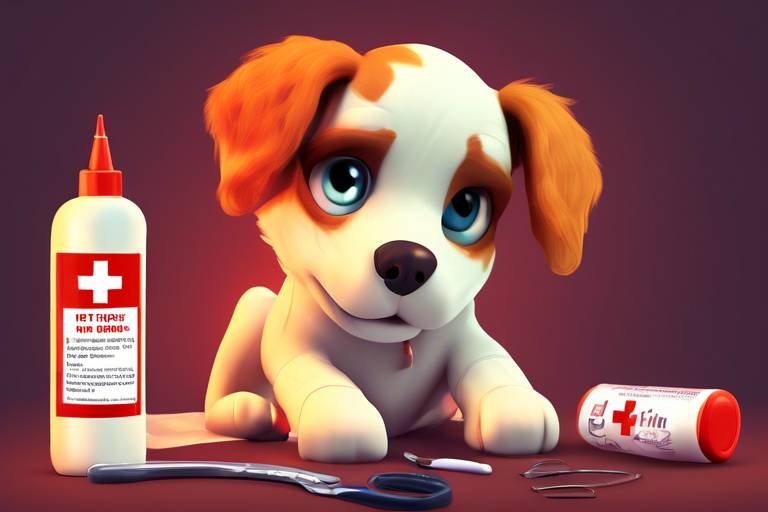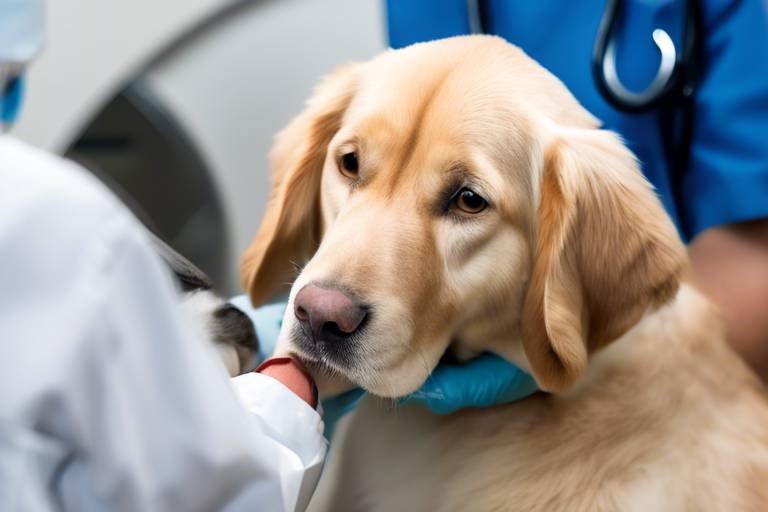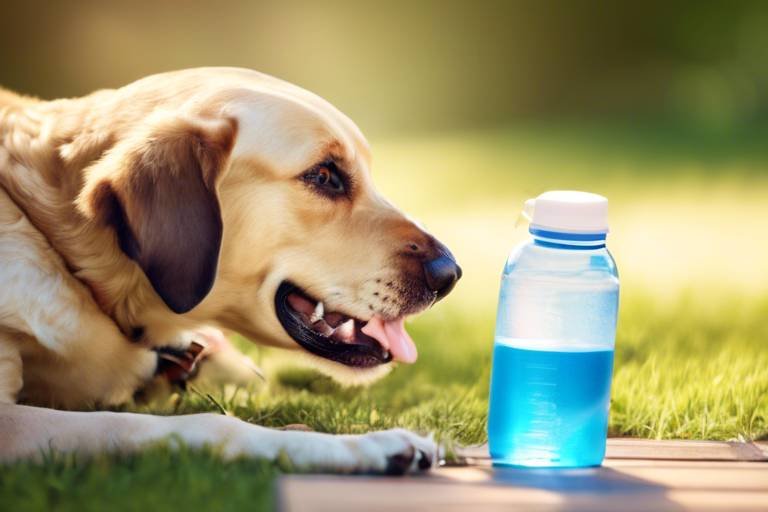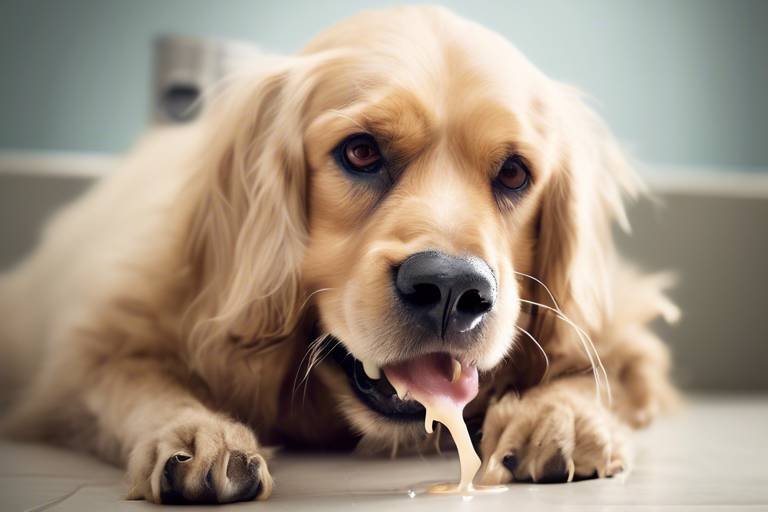What to Do If Your Pet Is Exposed to Poisonous Chemicals
As a pet owner, nothing is more heart-wrenching than the thought of your furry friend facing danger, especially from poisonous chemicals. Whether it’s a spilled cleaning product, a toxic plant, or even a human food that’s harmful to pets, knowing how to react can make all the difference. In this article, we’ll guide you through essential steps to take if your pet encounters toxic substances. From recognizing the signs of poisoning to immediate actions and long-term care considerations, we aim to equip you with the knowledge to ensure your pet’s safety and health.
Understanding the symptoms of poisoning in pets is crucial. Just like humans, pets can display a variety of reactions when they’ve ingested something toxic. Common signs include:
- Vomiting: This is often the first sign that something is wrong.
- Lethargy: If your pet seems unusually tired or unresponsive, it’s time to take notice.
- Seizures: These are serious and require immediate veterinary attention.
Other symptoms may include drooling, difficulty breathing, or even unusual behavior. If you notice any of these signs, it’s essential to act quickly. Remember, the sooner you recognize the problem, the better the chances of a positive outcome.
Knowing what to do right away can save your pet's life. First and foremost, remain calm. Your pet can sense your anxiety, and staying composed will help you think clearly. Here are critical steps to follow:
Prompt communication with a veterinary professional is vital. When you call your vet, be prepared to relay important information about the exposure. This includes the type of poison, the amount ingested, and your pet's weight. Having this information ready can significantly impact the treatment your pet receives.
When contacting the vet, make sure to provide details like:
- Type of poison: If you know what your pet ingested, mention it immediately.
- Amount ingested: This helps the vet assess the severity of the situation.
- Your pet's weight: Essential for determining the right dosage of any antidote or treatment.
This information will help the vet determine the best course of action and whether you need to bring your pet in for an emergency visit.
In certain cases, immediate veterinary care is necessary. If advised by your vet, take your pet to the clinic without delay. During an emergency visit, you can expect a thorough examination, possible blood tests, and treatments like activated charcoal or intravenous fluids. Preparing your pet for treatment can help ease their anxiety. Bring along any packaging or labels of the substance involved, as this will provide crucial information for the vet.
Some home remedies can be harmful rather than helpful. For instance, inducing vomiting at home is often a bad idea unless specifically instructed by a veterinarian. Many pet owners mistakenly believe that certain household items can counteract poison, but this is usually not the case. Always seek professional guidance rather than relying on unverified home treatments.
Prevention is key to keeping your pet safe. Taking proactive steps can significantly reduce the risk of exposure to poisonous chemicals in your home and environment. Here are a few strategies to consider:
Properly storing household chemicals can prevent accidental ingestion. Make sure to keep toxic substances out of reach of pets. Consider using child-proof locks on cabinets where you store cleaning supplies or other hazardous materials. Always read labels and be aware of the dangers associated with particular substances.
Ensuring everyone in the household understands the dangers of certain chemicals is crucial. Discuss pet safety with family members, especially children, who may not realize the risks. Education can go a long way in preventing accidents, so take the time to explain which items are dangerous and why they should be kept away from pets.
Q: What should I do if my pet ingests a toxic plant?
A: Immediately identify the plant and contact your veterinarian for advice. They may instruct you to bring your pet in for evaluation.
Q: Can I give my pet activated charcoal at home?
A: Only administer activated charcoal if advised by a veterinarian. It can be beneficial, but the dosage must be appropriate for your pet's weight and condition.
Q: How can I tell if my pet is feeling better after poisoning?
A: Look for signs of normal behavior returning, such as increased energy, normal eating habits, and a return to playful activities.
Remember, being prepared and informed can make all the difference in an emergency. Your pet relies on you, so stay vigilant!

Recognizing Signs of Poisoning
When it comes to our beloved pets, their safety is of utmost importance. Understanding the signs of poisoning can be the difference between life and death. Animals, much like humans, can exhibit a variety of symptoms when they've ingested something toxic. It’s crucial to be vigilant and aware of these signs, as they can vary depending on the type of poison involved. Common symptoms include vomiting, lethargy, and seizures. If you notice any of these symptoms, it’s essential to take immediate action.
Let's break it down further. When a pet is poisoned, they may display symptoms such as:
- Vomiting: This is often the first sign that something is wrong. If your pet is vomiting repeatedly, it could indicate that they've ingested something harmful.
- Lethargy: If your pet seems unusually tired or lacks energy, it’s a red flag. A normally active dog or cat that suddenly becomes sluggish should raise your concerns.
- Seizures: This is a severe sign of poisoning and requires immediate veterinary attention. If your pet experiences seizures, don’t wait—get help right away.
- Excessive drooling: While a little drool is normal, an excessive amount can indicate that your pet has ingested something toxic.
- Difficulty breathing: If your pet is struggling to breathe, it may be a sign of a serious poisoning situation that needs immediate intervention.
In addition to these symptoms, you might notice other signs such as diarrhea, tremors, or even changes in behavior. For instance, a pet that is usually friendly might become aggressive or fearful. These behavioral changes can often indicate distress or discomfort. It's important to observe your pet closely and trust your instincts. If something feels off, it’s always better to err on the side of caution.
Being aware of the potential sources of poisoning in your home can also help you recognize the signs more effectively. Common household items that are toxic to pets include:
- Cleaning products
- Plants such as lilies and azaleas
- Human medications
- Food items like chocolate, grapes, and onions
In summary, recognizing the signs of poisoning in pets is crucial for their safety. If you notice any of the symptoms mentioned, don't hesitate to seek veterinary assistance. Remember, your pet relies on you to keep them safe, and being proactive can make all the difference.
Q: What should I do if I suspect my pet has been poisoned?
A: If you suspect poisoning, contact your veterinarian or an emergency animal clinic immediately. Provide them with as much information as possible about your pet's symptoms and any potential toxins they may have ingested.
Q: Are there any home remedies I can use for pet poisoning?
A: It's best to avoid home remedies, as they can sometimes worsen the situation. Always consult a veterinarian for proper treatment.
Q: How can I prevent my pet from being poisoned?
A: Keep hazardous substances out of reach, educate family members about pet safety, and regularly check your home for potential toxins.

Immediate Actions to Take
When you discover that your beloved pet has been exposed to poisonous chemicals, the first thing you might feel is panic. But don’t worry! Staying calm and knowing the right steps to take can make a world of difference. The **immediate actions** you take can be crucial in potentially saving your pet's life. First and foremost, it’s essential to **assess the situation**. If your pet shows any signs of distress, such as vomiting, difficulty breathing, or unusual behavior, it’s time to act swiftly.
One of the most important steps is to contact a veterinarian immediately. This can be a veterinary clinic or an emergency animal hospital. Make sure to communicate clearly and provide them with as much information as possible. This includes the type of poison, how much was ingested, and your pet's weight. The more details you provide, the better equipped the veterinarian will be to give you tailored advice on what to do next.
When you call the vet, it's crucial to keep your composure and relay the necessary details. Here’s a quick checklist of what you should mention:
- Type of poison: If you know what your pet ingested, share that information. If you don’t know, try to describe the substance or its packaging.
- Amount ingested: Estimate how much of the poison your pet may have consumed.
- Your pet's weight: This helps the vet determine the severity of the situation.
- Symptoms observed: Mention any symptoms your pet is exhibiting, as this can help in assessing the urgency of the situation.
Once you’ve provided all this information, the vet will guide you on the next steps. They may instruct you to bring your pet in for an examination or provide first-aid advice over the phone. In some cases, they might recommend inducing vomiting, but only if they deem it safe and appropriate. This is why it’s vital to follow their instructions closely.
If your veterinarian advises an emergency visit, it’s important to prepare your pet for transport. Keep your pet calm and secure them in a carrier or with a leash. During the visit, the veterinary staff will likely perform a series of tests to assess your pet's condition. They might ask you additional questions, so having a list of symptoms and details handy can be helpful. Remember, the sooner you act, the better the chances of a positive outcome.
In the heat of the moment, you might be tempted to try home remedies to alleviate your pet’s symptoms. However, this can often do more harm than good. Many common household items, like hydrogen peroxide or activated charcoal, can be dangerous if administered incorrectly. Always avoid giving your pet any medications or treatments without consulting a veterinarian first. Professional guidance is essential to ensure your furry friend receives the appropriate care.
In summary, if your pet is exposed to poisonous chemicals, remember to stay calm, contact a veterinarian immediately, provide essential information, and avoid home remedies. Your quick and informed actions can make a significant difference in your pet's chances of recovery.
1. What should I do if I don't know what my pet ingested?
If you are unsure of what your pet has ingested, try to collect any packaging or remnants of the substance and describe it to your veterinarian. They can help you identify the poison and suggest the best course of action.
2. Can I induce vomiting at home?
Inducing vomiting can be dangerous and should only be done under the guidance of a veterinarian. Some substances can cause more harm if vomited, so always consult a professional first.
3. How can I prevent my pet from being poisoned in the future?
Preventive measures include storing chemicals safely out of reach, being cautious with household plants, and educating all family members about the dangers of certain substances.
4. What are the signs that my pet is poisoned?
Common signs of poisoning include vomiting, diarrhea, lethargy, seizures, difficulty breathing, and unusual behavior. If you notice any of these symptoms, seek veterinary assistance immediately.
Contacting a Veterinarian
When you suspect that your beloved pet has been exposed to a poisonous substance, acting quickly is essential. The first thing you should do is grab your phone and contact your veterinarian or an emergency animal clinic. But what should you say when you get them on the line? Clear communication is key. Start by explaining the situation concisely—let them know what your pet was exposed to and how long ago it happened. This information is crucial for the vet to assess the urgency of the situation.
Here are some important details you should be ready to provide:
- Type of poison: If you know what your pet ingested, mention it. If it’s a household product, share the name and ingredients if possible.
- Amount ingested: Try to estimate how much your pet consumed. This can significantly affect the treatment options available.
- Your pet's weight: Knowing your pet’s weight is important for determining the proper dosage of any necessary treatments.
- Symptoms observed: Inform the vet of any symptoms you’ve noticed, such as vomiting, diarrhea, or lethargy.
Once you’ve conveyed this information, be prepared to answer any questions the veterinarian may have. They might ask for additional details or give you specific instructions on what to do next. Don’t hesitate to ask questions yourself! Inquire about what signs to watch for and whether you should bring your pet in for an examination. Remember, the more information you provide, the better equipped the vet will be to help your furry friend.
In some cases, your vet may instruct you to induce vomiting or administer activated charcoal. However, never attempt these remedies without professional guidance, as they can sometimes do more harm than good. Always follow the vet's advice closely, as they are the experts in handling these situations.
In emergency situations, time is of the essence. If your veterinarian advises that you come in immediately, make sure to prepare your pet for the visit. Keep them calm and secure during transport. If your pet is showing severe symptoms, such as seizures or difficulty breathing, do not delay in seeking help, as these can be life-threatening conditions.
Information to Provide
When you find yourself in the distressing situation of needing to contact your veterinarian after your pet has been exposed to a poisonous substance, it's essential to be prepared. The more accurate information you can provide, the better equipped your vet will be to offer the necessary care. Here are some critical details you should have ready before making that call:
- Type of Poison: Clearly identify the substance your pet has ingested. This could be a household chemical, a plant, or even human food that is toxic to animals.
- Amount Ingested: If you can, estimate how much of the poison your pet consumed. Even a rough estimate can be incredibly helpful.
- Your Pet's Weight: Knowing your pet's weight can help the veterinarian assess the severity of the situation and determine the appropriate treatment.
- Time of Exposure: Mention when the exposure occurred, as this can influence the urgency and type of treatment required.
- Symptoms Observed: Describe any symptoms your pet is showing, such as vomiting, diarrhea, or lethargy. This information can help the vet gauge the seriousness of the poisoning.
Having this information at your fingertips can significantly impact your pet's treatment. It’s like giving your veterinarian a roadmap to navigate the best course of action. Remember, every second counts when it comes to poisoning, so don’t hesitate to provide as much detail as possible.
In addition to sharing this information, keep your pet calm. While it's natural to feel panic in such situations, your pet can pick up on your anxiety. A soothing voice and gentle handling can make a world of difference. If you’re unsure about something, don’t hesitate to ask the vet for clarification during the call. They’re there to help you and your furry friend through this challenging time.
When it comes to pet poisoning, many pet owners have similar concerns. Here are some frequently asked questions that can provide additional clarity:
- What should I do if I suspect my pet has ingested poison? - Contact your veterinarian immediately and provide them with the necessary information about the exposure.
- Can I give my pet anything at home to counteract the poison? - It’s crucial to avoid home remedies unless advised by a veterinarian, as some can worsen the situation.
- How can I tell if my pet is experiencing severe symptoms? - Look for signs such as difficulty breathing, seizures, or unresponsiveness. If you observe any of these, seek emergency care right away.
- Are certain pets more susceptible to poisoning? - Yes, young pets, elderly pets, and those with pre-existing health conditions may be more vulnerable.
By equipping yourself with knowledge and acting quickly, you can help ensure your pet receives the best possible care in the event of a poisoning incident.
Emergency Vet Visits
When it comes to your pet's health, especially after suspected poisoning, time is of the essence. If you find yourself in a situation where your furry friend requires urgent care, knowing what to expect during an emergency vet visit can make all the difference. First and foremost, be prepared for a whirlwind of activity as soon as you arrive at the clinic. The veterinary staff will likely jump into action, assessing your pet's condition and determining the best course of treatment. This initial response can feel overwhelming, but remember, they are trained professionals ready to help.
Before you head out, it’s wise to gather all relevant information about the incident. This includes the type of poison, the amount ingested, and your pet's weight. If you have the packaging of the poison or any related materials, bring those along too. This information is crucial for the vet to act swiftly and effectively. Here’s a quick checklist of what to prepare:
- Type of poison: Be specific about what your pet might have ingested.
- Amount ingested: Estimate how much your pet consumed.
- Your pet's weight: This helps the vet determine the appropriate treatment.
- Time of exposure: Knowing when the exposure occurred can influence treatment options.
Once you’re at the clinic, expect a thorough examination. The vet will likely ask you a series of questions to gather more details. Don’t hesitate to provide as much information as you can; it can be a matter of life and death. They will assess your pet’s vital signs, perform necessary tests, and may even induce vomiting if it’s safe to do so, depending on the poison involved.
After the initial assessment, treatment options will be discussed. This could range from administering activated charcoal to prevent further absorption of the poison, to intravenous fluids to flush out toxins. In severe cases, your pet may require hospitalization for more intensive care. Understanding the potential treatments can help you make informed decisions, so don’t hesitate to ask questions about the procedures and expected outcomes.
In summary, an emergency vet visit can be a stressful experience, but being prepared can ease some of that anxiety. Remember, the quicker you act, the better the chances of a positive outcome for your beloved pet. Stay calm, provide all necessary information, and trust in the expertise of the veterinary team.
Home Remedies to Avoid
When it comes to treating your beloved pet after a potential poisoning, it's natural to feel a sense of urgency and want to take immediate action. However, not all home remedies are safe, and some can actually exacerbate the situation. For instance, many pet owners might think that inducing vomiting is a good first step. While this may seem logical, it can be dangerous depending on the type of poison involved. Certain substances, like corrosive chemicals or petroleum products, can cause more harm if vomited back up.
Another common misconception is the use of activated charcoal. While it can be beneficial in some cases, it’s not a universal antidote. Administering activated charcoal without veterinary guidance can lead to serious complications, especially if your pet is unconscious or has difficulty swallowing. Additionally, some pet owners may resort to giving their pets milk or other home concoctions, believing they will dilute the poison. This is a myth! In fact, it can interfere with the vet’s ability to treat your pet effectively.
It's also crucial to avoid using essential oils or herbal remedies that are touted as "natural" detox solutions. Many of these substances can be toxic to pets themselves. For example, oils like tea tree and eucalyptus can cause severe reactions in dogs and cats. Instead of relying on these unverified treatments, the best course of action is to seek professional help. Veterinarians are trained to handle poisoning cases and can provide the most effective treatment based on the specific situation.
To summarize, here are some key home remedies to avoid:
- Inducing Vomiting: Only do this if directed by a vet.
- Activated Charcoal: Use only under veterinary guidance.
- Milk and Other Dilutants: These can do more harm than good.
- Essential Oils and Herbal Remedies: Many are toxic to pets.
Remember, when it comes to your pet’s health, the safest and most effective remedy is to consult with a veterinarian. They can assess the situation and provide the appropriate treatment, ensuring your furry friend gets the care they need without the risks associated with home remedies.
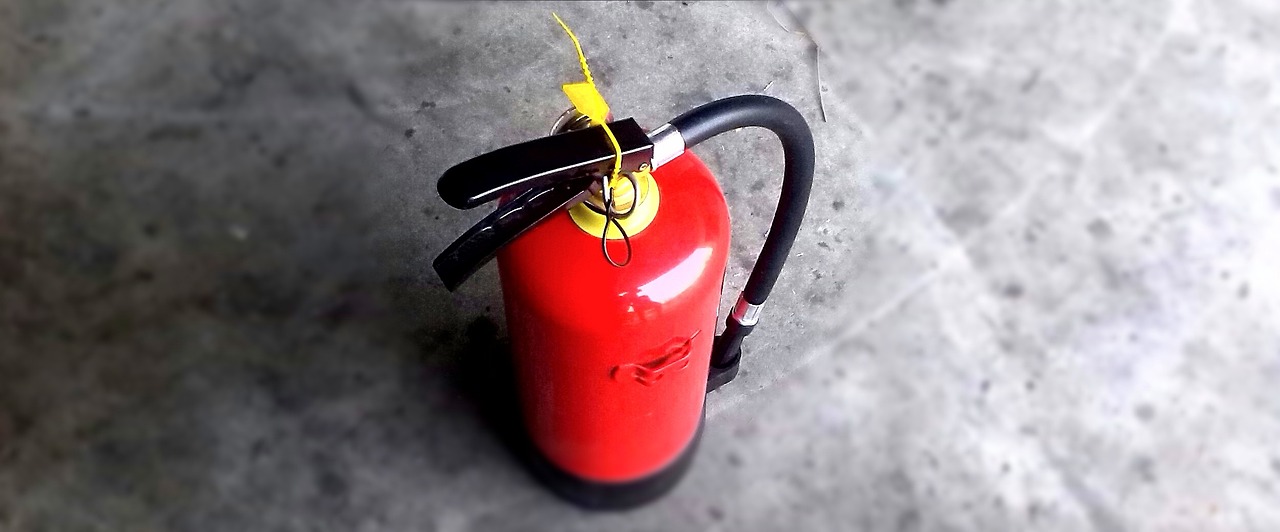
Preventive Measures
When it comes to keeping our beloved pets safe from harmful chemicals, prevention is always better than cure. It’s like locking the front door before leaving the house; you wouldn’t want to leave it wide open for trouble to come in, right? Taking proactive steps can significantly reduce the risk of your furry friend encountering poisonous substances. One of the primary strategies is to ensure that all household chemicals are stored safely and securely. Think of your cleaning supplies, garden chemicals, and even medications as potential hazards. By keeping them in high cabinets or locked areas, you can prevent curious paws from getting into trouble.
In addition to safe storage, it’s essential to educate everyone in your household about the dangers posed by certain chemicals. Just like you wouldn’t want your kids playing with fire, it’s vital that all family members understand which substances are toxic to pets. You might consider having a family meeting to discuss this topic. Make it engaging by using visuals or even a fun quiz to reinforce the information. Remember, knowledge is power, and the more informed everyone is, the safer your pets will be.
Moreover, it’s wise to create a pet-safe zone in your home. This could be an area where your pets can roam freely without the risk of encountering dangerous items. You could set up a designated space with their toys, food, and a cozy bed, ensuring that they have a safe retreat. Additionally, when it comes to outdoor spaces, be cautious about what you use in your garden. Some plants and fertilizers can be toxic to pets, so researching pet-friendly gardening practices is a must. Here’s a quick table to summarize some common household items to keep away from pets:
| Item | Toxicity Level |
|---|---|
| Bleach | High |
| Antifreeze | Very High |
| Rodenticides | High |
| Houseplants (like Lilies) | Varies |
| Human Medications | High |
By taking these preventive measures, you can create a safer environment for your pet. Regularly review your home for potential hazards, and don’t hesitate to consult with your veterinarian for advice on keeping your home safe. After all, a little vigilance goes a long way in ensuring your pet leads a happy and healthy life.
Q: What should I do if I suspect my pet has ingested something toxic?
A: Stay calm and immediately contact your veterinarian or an animal poison control hotline. Provide them with as much information as possible about the substance, your pet's weight, and any symptoms you observe.
Q: Are there any common household items that are toxic to pets?
A: Yes, several common items can be harmful, including cleaning products, certain plants, human medications, and foods like chocolate and grapes. Always check labels and keep these items out of reach.
Q: How can I tell if my pet is experiencing symptoms of poisoning?
Look for signs such as vomiting, diarrhea, lethargy, seizures, or unusual behavior. If you notice any of these symptoms, seek veterinary assistance immediately.
Q: Can I use home remedies to treat my pet if I suspect poisoning?
It’s best to avoid home remedies unless advised by a veterinarian. Some remedies can do more harm than good, so always consult a professional.
Q: What preventive measures can I take to protect my pet?
Ensure safe storage of chemicals, educate your family about pet safety, create a pet-safe zone, and be cautious with outdoor plants and fertilizers.
Safe Storage of Chemicals
When it comes to keeping our furry friends safe, one of the most important yet often overlooked aspects is the . Many household products, from cleaning supplies to gardening chemicals, can pose serious risks if they are not stored properly. Imagine your pet, curious and adventurous, finding a bottle of cleaner tucked away in a cabinet. Just like a child, pets can easily get into places we think are secure, so it’s essential to take preventive measures.
To ensure your pet's safety, start by identifying all the chemicals in your home. This includes cleaning agents, pesticides, and any other toxic substances. Once you have a list, consider the following key practices for safe storage:
- Keep Chemicals Out of Reach: Store all hazardous substances in high cabinets or locked areas. Pets are clever and can jump or climb, so simply placing items on a shelf may not be enough.
- Use Childproof Containers: Many household chemicals come in containers that are not pet-proof. Invest in childproof locks or containers that are difficult for pets to open.
- Label Everything: Clearly label all chemicals and store them in their original containers. This not only helps you remember what each product is but also informs anyone else in the household about potential dangers.
Additionally, consider creating a designated area for all cleaning and gardening supplies. This could be a locked cabinet or a shelf that is consistently monitored. By having a specific spot for these items, you will not only reduce the risk of accidental exposure but also make it easier to keep track of what you have on hand.
Another important aspect of safe storage is to regularly check for expired products. Old chemicals can become more hazardous over time, and it’s best to dispose of them safely. Follow your local regulations for disposing of hazardous waste to ensure you’re not putting your pet or the environment at risk.
Lastly, educate everyone in your home about the importance of safe chemical storage. If children or other adults understand the risks, they are less likely to leave items unsecured. A little awareness can go a long way in preventing accidents and keeping your pet safe.
In summary, safe storage of chemicals is a crucial step in protecting your pet from potential poisoning. By being proactive and mindful of how and where you store these substances, you can create a safer environment for your beloved companion.
Q: What should I do if my pet ingests a household chemical?
A: If you suspect your pet has ingested a toxic substance, contact your veterinarian or an emergency animal poison control hotline immediately. Do not wait for symptoms to appear, as prompt action can save your pet's life.
Q: How can I tell if a chemical is toxic to pets?
A: Always read labels and look for warnings regarding pets. Many products will indicate if they are harmful to animals. If in doubt, research the product or consult your veterinarian.
Q: Are there any pet-safe cleaning products?
A: Yes! Many brands offer cleaning products that are specifically formulated to be safe for pets. Look for those labeled as non-toxic or pet-friendly.
Q: How can I educate my family about chemical safety?
A: Hold a family meeting to discuss the dangers of household chemicals and the importance of proper storage. Use visuals, such as labels and storage solutions, to reinforce the message.
Educating Household Members
When it comes to keeping our pets safe from poisonous chemicals, education is the best defense. It's not just about you being aware; everyone in the household needs to understand the potential dangers lurking around the home. Imagine a world where all family members, from the youngest to the oldest, are on the same page regarding pet safety. This collective awareness can significantly reduce the risk of accidental poisonings.
Start by having an open conversation about the various household items that can be harmful to pets. This includes common substances like cleaning products, certain plants, and even human foods that are toxic to animals, such as chocolate or grapes. You could create a simple information sheet that lists these items, along with the signs of poisoning to watch out for. Display this sheet in a common area, like the kitchen or living room, where everyone can see it. It’s a great way to keep the information fresh in their minds.
Furthermore, consider organizing a family meeting dedicated to pet safety. During this meeting, you can:
- Discuss the importance of keeping dangerous substances out of reach.
- Share stories or examples of pets that have suffered from poisoning.
- Encourage questions and discussions about any concerns family members may have.
Another effective strategy is to involve children in the conversation. Teach them about the potential dangers in a way that is relatable and easy to understand. You could use analogies, like comparing poisonous substances to “bad guys” that can hurt their furry friends. This not only makes the learning process fun but also instills a sense of responsibility in them. Encourage them to be vigilant and to tell an adult if they see something that could harm the pet.
Lastly, make it a habit to regularly review safety protocols with your household. Changing seasons might bring new plants or cleaning products into the home, so it’s essential to stay updated. By fostering an environment of open communication and ongoing education, you create a safety net for your pets, ensuring they can roam freely without the looming threat of accidental poisoning.
Q1: What should I do if I suspect my pet has ingested something toxic?
A1: Contact your veterinarian immediately. Provide them with details about the substance, the amount ingested, and your pet's weight. This information is crucial for determining the right course of action.
Q2: Are there any home remedies I can use for poisoning?
A2: It's best to avoid home remedies unless directed by a veterinarian. Some remedies can worsen the situation, so always seek professional help first.
Q3: How can I prevent my pet from accessing harmful chemicals?
A3: Store all chemicals in high cabinets or locked areas, and ensure that all household members are aware of what substances are dangerous and where they are kept.
Q4: What are some common signs of poisoning in pets?
A4: Look for symptoms such as vomiting, diarrhea, lethargy, seizures, or unusual behavior. If you notice any of these signs, seek veterinary assistance immediately.
Frequently Asked Questions
- What should I do if I suspect my pet has ingested poison?
If you think your pet has ingested something toxic, the first step is to stay calm. Quickly gather information about the substance, including its name and how much your pet may have consumed. Then, contact your veterinarian or an emergency animal poison control hotline immediately for guidance on the next steps.
- What are the common signs of poisoning in pets?
Common signs of poisoning in pets include vomiting, diarrhea, lethargy, and seizures. Other symptoms may include difficulty breathing, drooling excessively, or showing signs of distress. If you notice any of these symptoms, seek veterinary care right away.
- Are there any home remedies I can use for poisoning?
It's crucial to avoid home remedies when dealing with potential poisoning. Many common treatments can actually worsen the situation. Always consult a veterinarian for professional advice before attempting any treatment at home.
- How can I prepare for an emergency vet visit?
When heading to the vet, bring any packaging or labels of the suspected poison, as this can help the vet determine the best course of action. Also, be ready to provide your pet's weight and any symptoms you've observed. This information is vital for effective treatment.
- What preventive measures can I take to keep my pet safe from poisons?
To prevent poisoning, store all household chemicals securely out of your pet's reach. Educate everyone in your household about the dangers of certain substances and ensure they know not to leave toxic items unattended. Regularly check your home for potential hazards.




